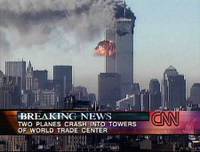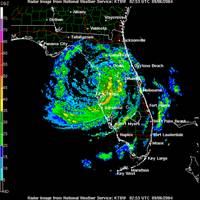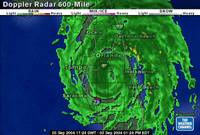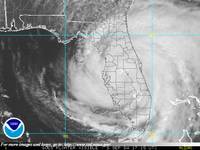An excellent editorial from the Grand Forks Herald, reprinted here in full: Grand Forks Herald | 09/12/2004 | EDITORIAL: New century finds a new journalism
EDITORIAL: New century finds a new journalism
If you're a media buff - and who isn't, in America in 2004? - then circle Thursday, Sept. 9, on your mental calendar. Because that's the day weblogs came into their own.
And politics and journalism never will be the same.
What happened Thursday is that webloggers or "bloggers" latched on to a controversial "60 Minutes"/CBS News story - and then worked the thing, with a stubbornness and tenacity that would have done credit to a pack of bulldogs or a turn of snapping turtles - or, yes, an army of investigative reporters.
As a result, CBS was forced to respond within a single news cycle. And although the network eventually stood by its story, more holes are showing up in the thing almost by the hour, and there's a fair chance the network will have to retract.
This may have been the first time a TV network was forced to respond so quickly to an Internet critique. But it won't be the last time for America's networks, newspapers or other institutions, because bloggers now are responding to events not as opinion writers but as fact-checkers and skilled reporters.
Here's the short form of what happened. Wednesday night: CBS's "60 Minutes" program broadcast a powerful and damaging report about President Bush. A young George W. Bush pulled strings not only to get into the Texas Air National Guard but also to be eased out without fulfilling his obligations, the report claimed.
And among other things, it cited a handful of newly uncovered documents as proof.
That's when the bloggers - especially conservative bloggers - chomped down. CBS posted copies of the incriminating documents online. But within hours, a poster named Buckhead at
www.freerepublic.com saw that the documents looked more like the product of 2004 word processing than a 1972 typewriter.
Power Line, a Twin Cities-based weblog - it's at
www.powerlineblog.com and is well worth reading, especially if you're new to the weblog phenomenon - posted Buckhead's comments. Then, in a clattering crescendo of keystrokes, the issue exploded in cyberspace. Soon
www.indcjournal.com had interviewed a "forensic document" specialist who agreed the documents likely were fakes. Then
www.littlegreenfootballs.com retyped the memos using Microsoft Word and showed them to be a perfect typographic match. Then retired Air National Guard officers and enlisted clerks weighed in, noting that the memos broke many 1970s-era rules of military style.
And that was only a hundredth of it.
The most amazing thing is that these developments could be followed in real time by anyone owning a computer. CBS issued periodic statements throughout the day Thursday, but by Friday, the cyberweight of the bloggers' (and, by then, talk-radio, TV and newspaper) reports couldn't be ignored. So Dan Rather on "CBS Evening News" defended the original report.
But a Saturday cybertour found more experts frowning at the documents, more newspapers publishing their own critical reports and even a CBS source or two walking away from the original story.
If CBS winds up retracting, the credit will have to go to the "blogosphere," a new and powerful force in journalism. Twin Cities blogger James Lileks of
www.lileks.com said it best: "The Internet smells blood and leaps, and that has turned the game around, for better or worse."











